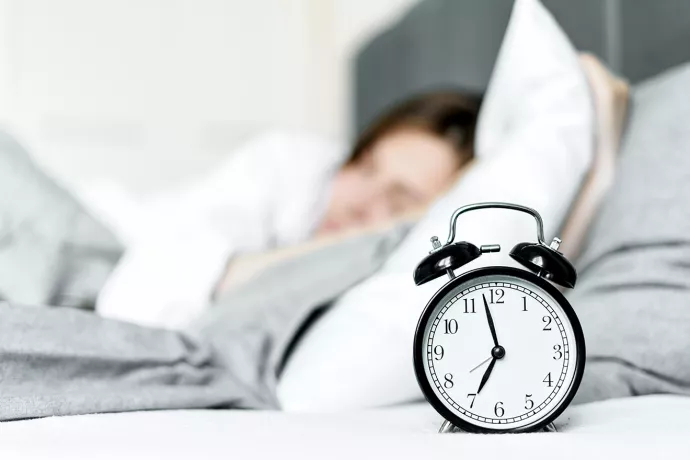
Upcoming time change can adversely affect sleep quality, research shows
The clocks are set to fall back this weekend, and while that brings with it the tantalizing promise of an extra hour of sleep, it may not be the quality sleep we crave.
That’s because our bodies, which typically run on a sort of internal biological 24-hour clock known as the circadian rhythm, must suddenly adjust to a one-hour time change.
“The strongest influencer of the circadian rhythm is the light-dark cycle,” says Ming Fei Li, an anthropology PhD student with UTM’s Sleep and Human Evolution Lab. When it gets dark, the body produces melatonin, which makes people feel drowsy, aiding in the transition to sleep.
“There’s a spring leap and a fall back … both these changes affect sleep. We’re adjusting to this socially implemented strict one-hour shift that happens in a day. But the light doesn’t follow that fast, one-hour shift,” Li explains. “So we have this internal clock that persists longer than the day it takes for us to switch.”
The time change affects morning larks differently than night owls, says Lavania Nagendran, an anthropology PhD student at UTM’s Schroeder Lab. Nagendran and Li have been working together on an unrelated study examining activity levels of sled dogs.
While the spring shift is harder for those who tend to stay up later because they find themselves suddenly having to get up an hour earlier, the fall time change is more difficult for people who are already accustomed to getting up early because now they’re naturally getting up even earlier.
That rapid change can adversely affect sleep quality. And it can take three to five days to adjust. Li says one study from Germany found it can even take two weeks to adjust, particularly for those on a stringent work schedule.
Most studies find that the day following the time change is generally fine, but it’s that first workday following the switch that puts a strain on people, Nagendran says. And while studies show vehicular accidents increase when the clocks spring forward, results are more mixed during the autumn change. She explains that may have to do with behavioural changes instead of sleep quality – those who think they have an extra hour stay out longer, and if alcohol is involved, it can impact drowsiness.
When it comes to adjusting, Li suggests taking it easy and being gentle on yourself. For example, if you’re used to going to bed at 10 p.m. but you find yourself getting sleepy at 9 p.m., just follow what your body is telling you.
“It’s OK to go to bed a little bit earlier even if the clock says it’s not that time yet,” she says.
